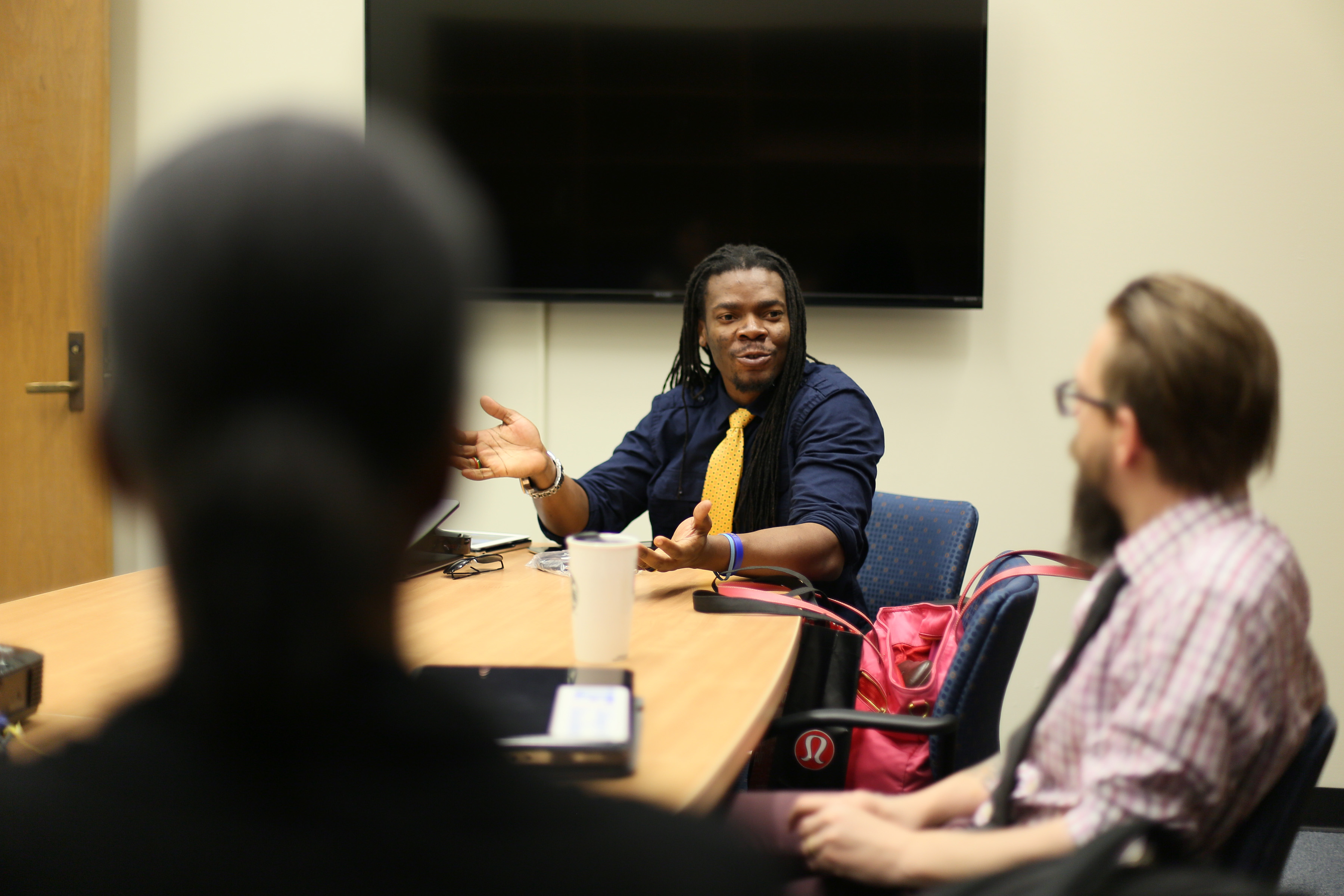Doctoral Program Overview
 Upon admission to the Special Education doctoral program you are given the status of doctoral student. Your main responsibility as a doctoral student is to complete course work while expanding your research and selecting your supervisory committee. During this period you will be interacting and collaborating with several professors regarding their research as well as your own research interests. These interactions are opportunities for multiple apprenticeships to learn how they began their work and how you will begin your work. You may start the program with a specific list of courses you wish to take but further understanding and knowledge of new topics may lead you to taking other courses in and out of the program area.
Upon admission to the Special Education doctoral program you are given the status of doctoral student. Your main responsibility as a doctoral student is to complete course work while expanding your research and selecting your supervisory committee. During this period you will be interacting and collaborating with several professors regarding their research as well as your own research interests. These interactions are opportunities for multiple apprenticeships to learn how they began their work and how you will begin your work. You may start the program with a specific list of courses you wish to take but further understanding and knowledge of new topics may lead you to taking other courses in and out of the program area.
Minimum Requirements for the Ph.D.
Students in the Ph.D. program must take course work leading to the development of knowledge and skills in areas identified by the program, college, and university as minimal Ph.D. requirements. (Specific courses required by the Special Education program area are described in the next section.)
- Analytical and Writing Skills
- Demonstrate general and applied knowledge of the different conceptual approaches to practices and research that are used in special education including (a) global knowledge of different approaches and the history and background of each approach and (b) ability to critically analyze research using different conceptual frameworks.
- Demonstrate the ability to analyze, synthesize, and critique the literature in Special Education according to the different conceptual approaches included in #1.
- Demonstrate the ability to critically analyze research literature in an area of Special Education and identify the weaknesses in methodology as well as gaps in the literature.
- Write a succinct, coherent, well-conceived synthesis of the literature on a selected topic.
- Content Knowledge
- Demonstrate knowledge of the critical issues and trends in Special Education through oral and written communication skills. (This objective is integrated with the objectives listed in I. Analytical and Writing Skills.) Topics may include: school change, law, history of special education, inclusive practices, assessment and identification, cultural diversity, families, and research to practice.
- Demonstrate knowledge of leaders in Special Education as they relate to different critical issues and trends.
- Professional Skills
- Develop doctoral level professional skills including: (1) an understanding of teaching and research skills that are developed through doctoral study; (2) an understanding of the roles and responsibilities of faculty and of students in the doctoral training process.
- Develop an area of expertise in the field of special education.
- Develop a portfolio documenting areas of expertise, professional skill and experiences. Tasks included in the portfolio are determined by the doctoral student and the supervisory committee.
Supervisory Committee
After being admitted to the doctoral program a temporary advisor will be assigned to provide assistance in planning the first semester of study and guidance in preparing for subsequent terms. The permanent committee should be formed as soon as possible after the student has begun doctoral work. Generally, the committee should be finalized no later than the end of the second semester of equivalent full-time study.
The supervisory committee consists of at least four members. At least two of the members, including the committee chair-person, must be from the Special Education program area. At least one member must be selected from outside the Special Education program area. This external committee member may be from another school within the College of Education or from another college within the university.
Once the committee has been established, the student must request that the Graduate Coordinator record the committee members on the Graduate School Information Management System.
Information regarding the duties and responsibilities of supervisory committees is available in the Graduate Catalog.




